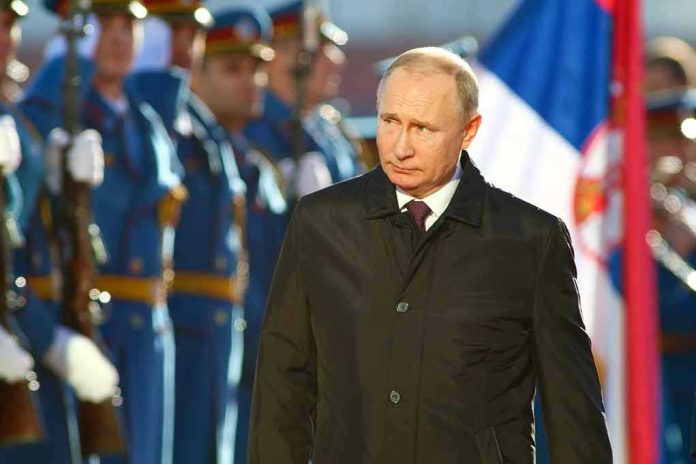
Poland’s invocation of Article 4 of the NATO Treaty over a drone invasion has raised significant concerns about potential threats to national sovereignty.
Story Highlights
- Poland invoked Article 4 of the NATO Treaty due to Russian drone incursions.
- Russia denies any breach of Polish airspace, claiming nothing happened.
- The incident raises questions about regional security and NATO’s response.
- Tensions between NATO members and Russia continue to grow.
Poland’s Invocation of Article 4
In a significant geopolitical move, Poland has invoked Article 4 of the NATO Treaty, citing a drone invasion by Russia. This article allows NATO members to consult when a member state feels its territorial integrity, political independence, or security is threatened. Poland’s action underscores heightened concerns over Russian activities near its borders, particularly given the ongoing conflict in Ukraine.
Poland’s decision comes amidst escalating tensions in Eastern Europe, where Russian military maneuvers have raised alarms among neighboring countries. The Polish government has emphasized the need for collective security measures, urging NATO to address what it sees as provocative actions by Russia. These developments highlight the fragile security dynamics in the region and the potential for further escalation.
Russia’s Response and Denial
Russia has officially denied any incursion into Polish airspace, dismissing Poland’s claims as unfounded. Russian officials maintain that their drones did not violate Polish territory, asserting that such accusations serve to heighten unnecessary tensions. This denial is consistent with past responses from Russia when accused of aggressive military postures in Eastern Europe.
The situation poses a challenge for NATO, as member states must balance diplomatic engagements with Russia against the need to reassure Eastern European allies of their security commitments. The alliance’s response will be critical in determining the future trajectory of relations between NATO and Russia.
Implications for Regional Security
The invocation of Article 4 by Poland marks a pivotal moment in the ongoing tensions between NATO and Russia. It highlights the persistent security concerns faced by Eastern European nations and the need for a robust collective defense posture. As NATO deliberates over potential responses, the incident also serves as a reminder of the alliance’s importance in maintaining regional stability.
Analysts suggest that NATO’s reaction will likely involve increased surveillance and defense readiness measures, aimed at deterring further provocations. However, the alliance must tread carefully to avoid escalating the situation into a broader conflict. The incident emphasizes the delicate balance of power in Eastern Europe and the critical role of diplomacy in resolving such disputes.
Poland Invokes Article 4 of the NATO Treaty Over Drone Invasion; Russia Says Nothing Happened https://t.co/lzLwM6MDmm
— Fearless45 (@Fearless45Trump) September 10, 2025
As the international community watches closely, the outcome of NATO’s deliberations will have far-reaching implications for regional stability and the broader geopolitical landscape. The situation underscores the ongoing challenges in managing Russia-NATO relations and the need for continued vigilance in safeguarding the sovereignty of member states.









